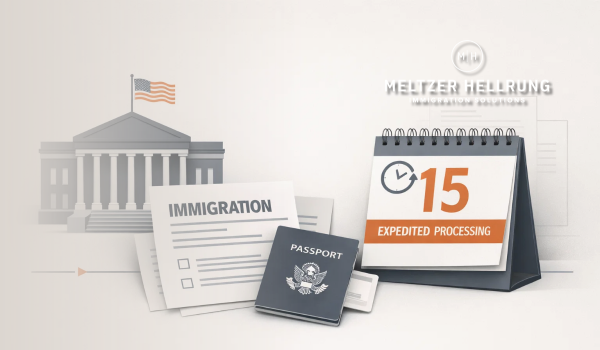The Issue
On August 28th, DHS proposed regulations that would eliminate “duration of status” (D/S) for F and J nonimmigrants, replacing it with fixed admission periods (up to 4 years). The proposed changes would also modify student grace periods, program transfer rules, and employment authorization processes.
While it may be several months before the proposed rule becomes effective, employers should consider how the proposed requirements will affect their hiring and employment verification compliance practices for student and exchange visitor employees.
A Deeper Dive
The proposed regulation would make the following changes for F-1 and J-1 Students:
-
- Fixed Admission Period: Replace admission for “duration of status” (D/S) with a fixed admission period tied to the program end date, capped at four years. Students needing more time would have to apply for an extension of stay with USCIS.
- Restrictions on Transfers and Educational Changes:
-
- Transfers or changes of educational objectives would be restricted in the first academic year, unless SEVP grants an exception (e.g., school closure, natural disaster).
- Students in graduate programs would be barred from transferring or changing objectives within the U.S.; and
- After completing one program, students could only begin a higher educational level, not the same or lower level.
- OPT Eligibility: Additional post-completion OPT would only be available when moving to a higher degree level. Certificate or lateral programs would not qualify.
- Departure Grace Period: The post-completion grace period would be reduced from 60 days to 30 days.
- Employment Authorization: F-1 and J-1 students applying for an extension of employment authorization will be eligible for automatic extensions (180/240 days depending on type of employment) while a timely filed application is pending. J-1 exchange visitors can continue working up to 240 days while an extension of stay is pending, but J-2 dependents have no automatic extension of employment authorization.
What this Means for Employers
If the proposed rule becomes effective, employers will need to address the following:
- Frequent Extension Filings: If students need to file multiple extensions of stay with USCIS just to continue their programs, employers may need to assist with preparation, filing, and legal costs.
- Case Monitoring: HR and immigration teams would need to track not only visa expiration dates but also admission/Form I-94 validity, adding additional compliance responsibilities.
- Lapsed Employment Authorization: If USCIS processing delays cause a lapse in a student’s work authorization, the student’s employment authorization could be disrupted. Employers may face sudden interruptions in work authorization, potentially impacting business continuity.
Meltzer Hellrung will continue to monitor the progress of this proposed rule and will provide updates as additional information becomes available. In the meantime, please contact your Meltzer Hellrung attorney if you require more information.
Scroll to Top ↑

